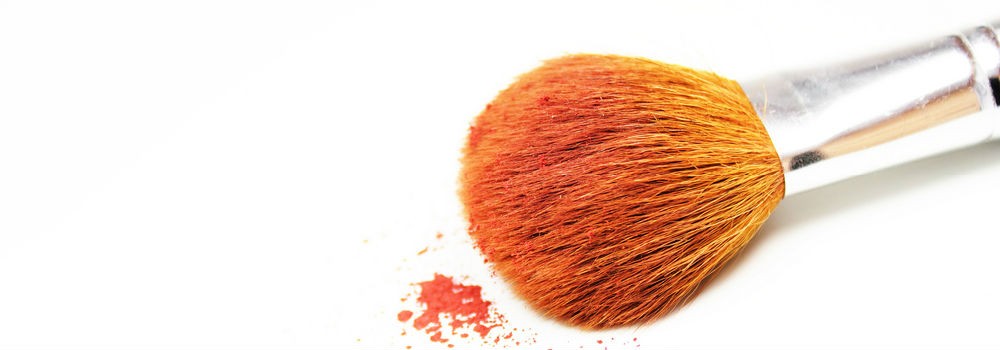Dusting for Cracks in the Beauty Industry
CONCLUSIONS: THE ‘WELLNESS FACTOR’ IS BIG
Despite concerns raised about the ingredients used in cosmetics, a major drive behind people’s love affair with cosmetics and beauty products seems to be the ‘wellness factor’.
Indeed, Praznik states that for a variety of reasons people have always done “things with their appearance that ultimately made them feel better”. But it is important, he stresses, that there be a balance in our pursuits of vanity. Wanting to look more youthful is alright, according to him, but if this desire totally dominated his life, this would become an extreme and therefore a problem.
Writing for the Tribune-Review, Candy Williams cites three different women – one a professor, another a representative for US Steel Corporation, and the last a commercial brokerage and project coordinator for Colliers Penn – all of whom report the importance in pampering themselves for both their well being and for them to better perform at their job.
Parse, the professor, says that “it’s more important now to take care of yourself. People want to feel good about themselves. It promotes a very optimistic attitude about life.” The US Steel Corp. representative claimed that “salon professionals have taught her how to look her best by following a personal beauty regime.”
And finally Bishop, the coordinator for Colliers Penn, stated that it is important to take care of herself so she can be “good to the people around [her], people that count. With that reasoning in mind,” she continues, “I don’t feel guilty for pampering myself. In fact, I ask myself, ‘Why aren’t I doing more of this?”
But perhaps these attitudes reflect a deeper issue; a kind of blurring of the balance that Praznik and Williams spoke of.
For instance, Parse, who travels the world giving lectures and has therefore become a sort of role-model, as she herself puts it, is of the opinion that is important to look good while giving her lectures, particularly as she is a role-model. But would her message be cluttered because she was not wearing foundation? Is the message that to be heard, one must look good?
Bishop’s comments echo something similar: that the only way to relax, perform well at our jobs or “be good to those that count” we must first be pampered in a beauty salon.
Praznik is a bit more optimistic in his views. He told me that his father, now close to 80 years old, “likes to get new clothes every now and then,” and he wears a fragrance to his bingo games that cause all the ladies to comment on how good he smells. This says Praznik has put a spring in his step; it makes him feel great and when he gets home he revels in it.
In this view, Praznik believes that it is possible to maintain a balanced interest in looking good. Moreover, he opines that it is because we are now living much longer and are more healthy – virtually a new territory as we are now able to age more than before and see longer stages of life – “people are also looking for that in their appearance,” and as a result more anti-aging creams and products have entered the market.
Finally, when I asked him if he thought the beauty industry was worth maintaining rather than downplaying its importance in society, he answered that “consumers define that every-day with their purchases.” That if they “didn’t feel they were getting the value in the products they were buying they [simply] wouldn’t buy them.”
And he certainly did not believe that it is not a barrage of advertising that makes consumers consume as much as they do. Even in earliest times, he said, “before modern mass advertising, people used cosmetics of their day. In every culture they adorn themselves.” According to him, advertising is a consequence of the competition between the options out there.
“If there were no advertising, people would still be buying those products; the advertising simply tells you what options I can buy. But it’s the competition between the options” that ignites advertising, and that is the purpose of it – simply to let us know our choices.
Perhaps this is true. Perhaps advertising does only communicate to us the choices out there, and it does not have any influence over our behaviour or buying-impulse. Nevertheless, it is evident that ‘beauty’ has become practically tantamount to all other basic needs. Indeed, as mentioned above, people are finding that they need to look good to perform better at their jobs; to be more approachable; and in some cases, even to be heard.
It doesn’t seem like people will stop buying cosmetics and other beauty products in our lifetime. If anything, it seems as if this is actually going to increase. In any event, it is important for people to have accessible information about such a prevalent industry, and that, as Praznik said, they lead a balanced life where pampering and wanting to recapture their youth does not become an obsession that leads them to get Botox shots as they shop for groceries or clothes.
Banner image courtesy of Matt Trostle
Feature image courtesy of Maria Morri































Share the post "Dusting for Cracks in the Beauty Industry"